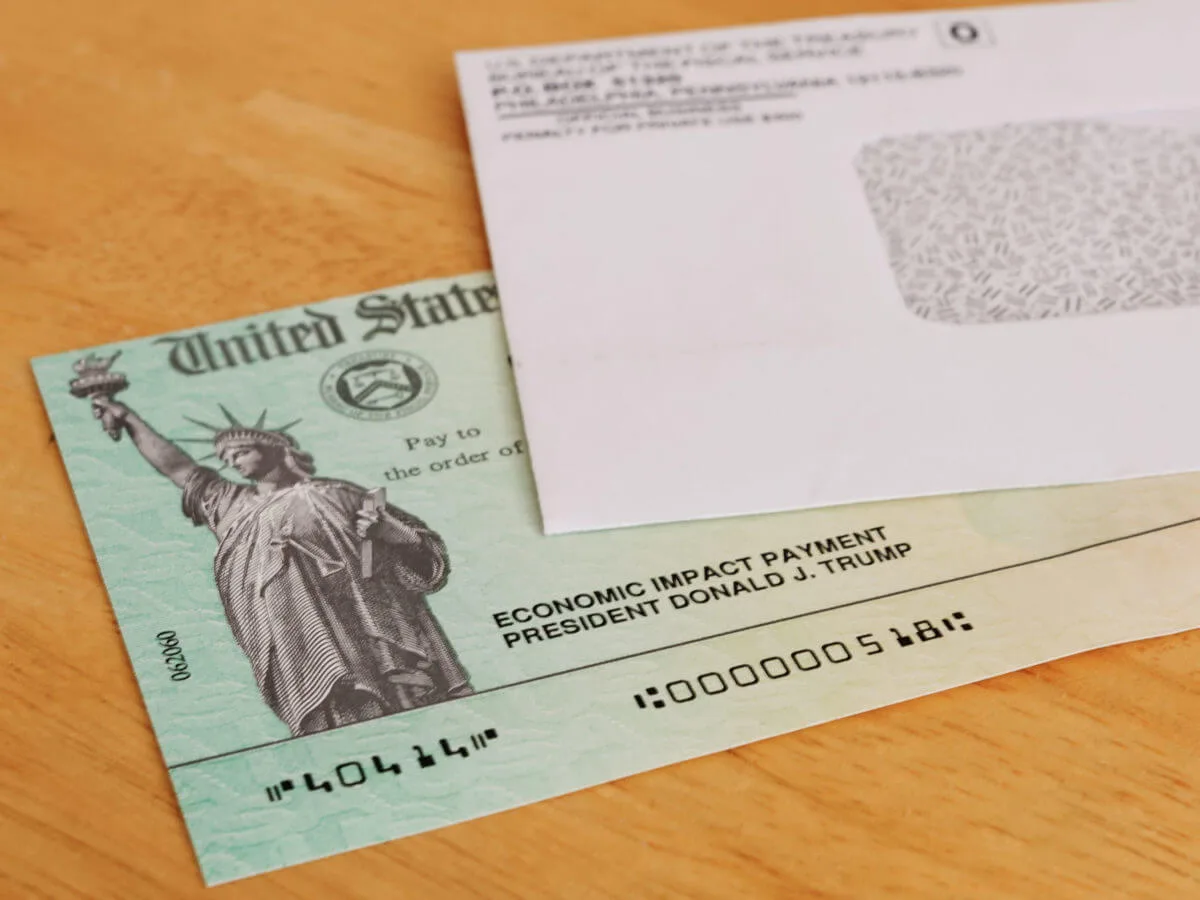
Image via Shutterstock
A national survey of 608 service providers found that 40% of DV survivors utilizing those organizations mentioned concerns about their stimulus checks.
A group of more than 100 mostly Democratic lawmakers is pressuring the Internal Revenue Service to send replacement stimulus payments to survivors of domestic violence. They also want the agency to set rules that would make it harder for abusers to intercept the cash if there’s a second round of stimulus checks.
“Congress passed the bipartisan CARES Act to swiftly deliver money into the hands of our most vulnerable constituents, and we cannot leave out survivors of domestic violence,” they wrote in a letter addressed to Treasury Secretary Steve Mnuchin and IRS Commissioner Charles Rettig on Sept. 30. It follows letters sent June 19 and April 6.
The CARES Act saw the Treasury Department and IRS issuing most eligible Americans a payment of up to $1,200 per adult and $500 per child this spring. But domestic violence caseworkers and advocates have been campaigning on behalf of survivors, whose checks may have been intercepted by abusive spouses or parents. The IRS has said that married couples should divide the stimulus payment as part of a divorce settlement, but that ignores unmarried partners.
“A stimulus payment can make a huge difference in financially easing the burdens many survivors and their children are facing with remaining safe and secure economically,” Sonya Passi told MarketWatch. Passi is the CEO of FreeFrom, an organization aiming to increase financial security for survivors. “The pandemic has caused many survivors to fall further into debt and placed even more limitations on their ability to financially seek safety from abuse and harm,” she added.
RELATED: 5 Months Later and More Than 8 Million Americans Are Still Waiting on Their Stimulus Checks
The pandemic triggered a global crisis in domestic violence, as lockdowns increased the amount of time abusers spent at home with their partners. A study at a major Massachusetts hospital found a significant jump in women seeking emergency care who self-identified as victims of domestic abuse this year. From March 11 and May 3—when Massachusetts Gov. Charles Baker declared a state of emergency and closed schools—the number of patients at Brigham and Women’s Hospital in Boston sustaining injuries consistent with abuse equaled that of the two previous years combined. That spring, the frequency of “deep” injuries resulting from strangulation, stabbing, burns, and/or the use of knives or guns also increased.
Oftentimes, partners utilize financial abuse along with physical or sexual abuse: That can include stopping victims from making their own money or making it difficult for them to keep a job; destroying their credit; controlling bank accounts; and identity theft.
The stimulus checks matter because domestic survivors can use the cash as a springboard toward safety: a security deposit on an apartment, emergency transportation, or child care.
It’s difficult to quantify how many DV survivors are missing out on their payments, but advocates have been tracking anecdotal evidence for months. Passi’s organization has heard 40 such cases, and they aren’t alone. The National Domestic Violence Hotline revealed similar stories of stimulus-check theft. And a national survey of 608 service providers found that 40% of DV survivors utilizing those organizations mentioned concerns about their stimulus checks.
“This is one more way that the abuser is exerting control and power over the victim,” said Nancy Rossner, a senior staff attorney at the Community Tax Law Project.
She advised survivors to mail in a return and a letter explaining the circumstances, which could trigger an IRS review and give a survivor an opportunity to advocate for themselves. The IRS hasn’t, however, said whether that would resolve matters.
In June, IRS chief Rettig was questioned on the issue. “Every person at the Internal Revenue Service is very sympathetic, understanding, and would like to assist any victim of domestic violence,” he responded, but no plan to do so has been made public.
In a report issued in September, the Government Accountability Office said that the IRS is considering “outreach to advocacy groups for victims of domestic abuse who can advise survivors of legal and other options they can pursue in such situations.”
Sorting Fact From Fiction: Sign Up for COURIER’s newsletter.
Politics

Teamsters and UPS Reach Tentative Deal to Avoid Strike, 340,000 Workers to Get Raises
The tentative deal represents a huge win for full- and part-time UPS Teamster workers, who would get significant pay raises and better working...

One Republican Senator Is Blocking 265 Military Promotions, Leaving the Marines Without a Confirmed Leader
Sen. Tommy Tuberville's decision means these military officers are not getting the pay raises they’re owed, cannot move their families to wherever...
Local News

Teamsters and UPS Reach Tentative Deal to Avoid Strike, 340,000 Workers to Get Raises
The tentative deal represents a huge win for full- and part-time UPS Teamster workers, who would get significant pay raises and better working...

One Republican Senator Is Blocking 265 Military Promotions, Leaving the Marines Without a Confirmed Leader
Sen. Tommy Tuberville's decision means these military officers are not getting the pay raises they’re owed, cannot move their families to wherever...




